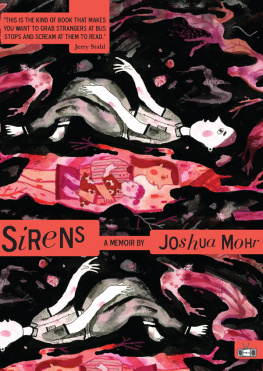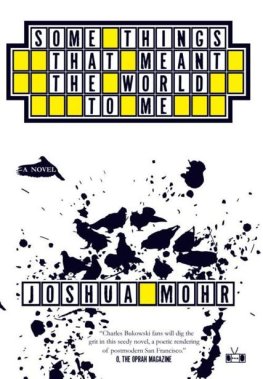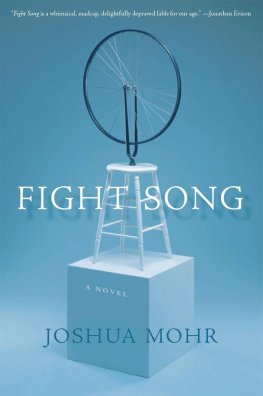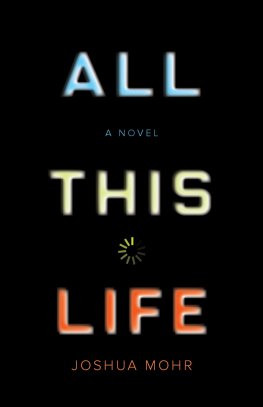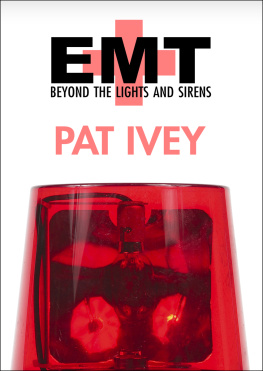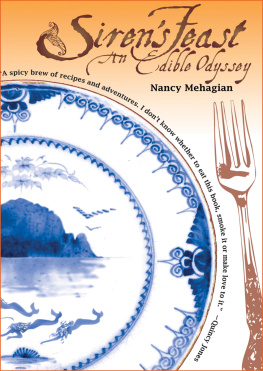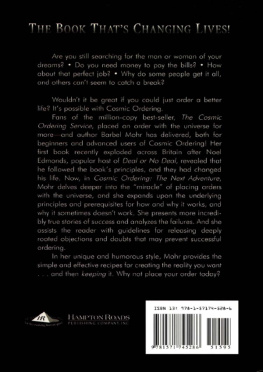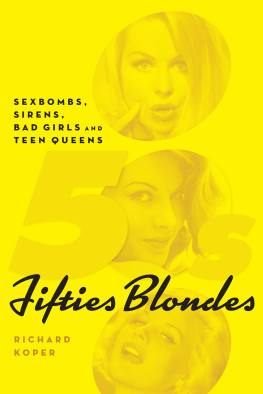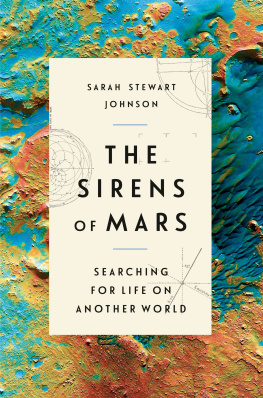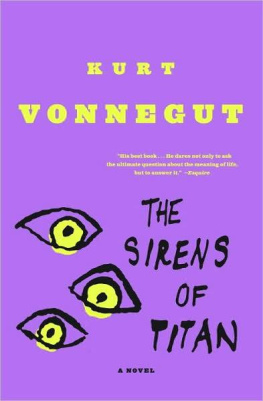PRAISE FOR JOSHUA MOHR
New Dad nearly becomes Newly Dead Dad in Joshua Mohrs astonishing, heart-in-the-mouth, darkly funny and wildly inspiring memoir, Sirens. What Mohr enduredthree strokes in his 30s and heart surgery, and thats just the fun partis more than most of us will suffer in a lifetime. Happily, the worse his prognosis, the stronger his writing. Until, by the end of his hospital party, what emerges is a cri de coeur of power, intensity, andIm just going to say itlove. This is the kind of book that makes you want to grab strangers at bus stops and scream at them to read. Think Kathy Acker, think Denis Johnson, think Amy Hempel. Sirens is a truly powerful work of art, by an artist were all lucky to have alive and working. Jerry Stahl
There may be a lot of writers in this day and age, but there are not a lot of writers like Joshua Mohr. Vol. 1 Brooklyn
Explodes with pyrotechnic prose. Termite Parade flaunts the big burning heart on Mohrs sleeve, wildly tossing it about to light the way in a relentless search for answers to the unanswerable. Rain Taxi
[Mohr] has a generous understanding of his characters, whom he describes with an intelligence and sensitivity that pulls you in. New York Times Book Review
With a remarkably subtle hand, Mohr leads the reader through a minefield of explosive topics: the wars in Afghanistan and Iraq, living with cancer and dealing with addiction. Damascus transcends all that and is nothing less than a primer on how to love those incapable of loving themselves. San Diego City Beat
[Mohr] is the new millennium street poet of San Franciscos Mission District. 3:AM Magazine
Mohrs got an inherent ability to spin a yarn; its as if hes standing over your shoulder lighting each page with a match as you read. The Rumpus

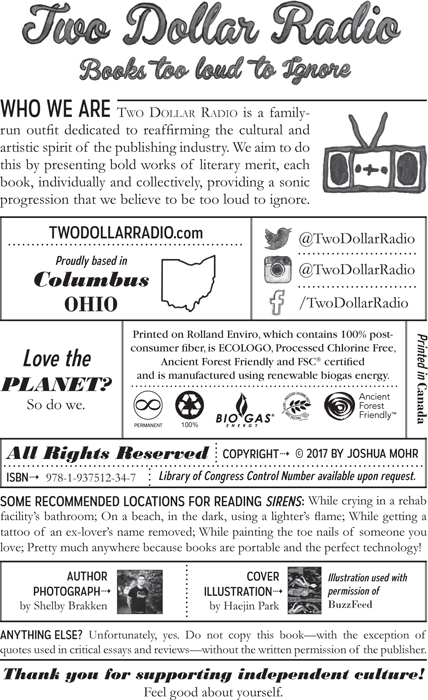
For while the tale of how we suffer, and how we are delighted, and how we may triumph is never new, it always must be heard. There isnt any other tale to tell, its the only light weve got in all this darkness.
James Baldwin
SIRENS
For those of us who want to do better.
PART 1:
COLUMBUS & COLUMBUS
Prologue
Its six in the morning on new years day and Ava cries from the crib, which means my wife says something to me like, Your turn, and I say something whiny like, Bottle, fine, and stumble into the kitchen and spill milk on the counter and dont wipe it up, leave it for later, after coffee, after caffeine makes my mind fire right. I tuck the bottle in the waistband of my drawers so I can hoist Ava up with both arms, and she says, Lets play, a new phrase for her, and I carry her back into our bed and lay her in the middle and get back in myself, Lelo and I flanking her, the three of us lying like a happy family, and for twenty seconds thats what we are.
Then the numbness starts.
I notice it first in my right arm, then realize its creeping into my leg too. Thats weird, I think, two limbs falling asleep at the same time.
Soon theres no feeling on that entire side of my body, from shoulder to toes.
I shift positions, rolling onto my back, so blood can flow freely.
Five seconds. Ten. Twenty.
Still numb.
Fear spills out of me like the milk rolling down my daughters chin. I shake my dead hand back and forth, back and forth, and say to Lelo, Somethings wrong, and she says, What? and I say, 911.
Shes to the phone fast and I roll over onto my stomach, a gesture that Ava interprets as an invitation to play and shes straddling my back and yelling, Hop on Pop! Hop on Pop!
My frantic wife doing her best to conjure the paramedics and me knowing beyond any doubt that the numbness will zip over me like a body bag and Ava keeps chanting, Hop on Pop! Hop on Pop! and I am crying uncontrollably, grieving a girl Ill never get to see turn into a woman and if this is the end of my life, I wish it had ended sooner. Wish I had died before meeting Lelo, before ever seeing Ava on the ultrasound, the size of an orange seed, our nickname for her until she was born.
I wish Id never gotten sober, never tried to be a better person. Why endure so much harrowing improvement to die like this at thirty-eight years old?
When I was in kindergarten I stabbed myself with a pencil, on purpose, for no reasonone minute sitting in class holding the thing in my hand wondering what it would feel like to be stabbed, and so I did it, hitting my open palm with the pencils tip, screaming and sobbing and bleeding, the teacher taking me to a water fountain to clean the wound and berate me, asking, Why why why, Josh, why on earth would you do that?
I still have the graphite lodged in my palm. Im looking at it right now. And for the next 50,000 words, youll be staring at it too.
1
But before any numbness in my body, before Lelo and Ava, I volunteered at a halfway house in the Mission District, teaching creative writing. This was about ten years ago, 2004 or 2005, while I was in grad school at the University of San Francisco.
Kae was one of my students at the halfway house. He had spent fifteen years in San Quentin and was out two weeks when I met him. One of the conditions of his parole was that he had to stay clean or hed be busted back to prison. After the first session we had together, he came up to me and said, Gonna be the first American Indian to win the National Book Award for nonfiction.
It made me like him immediately. Call it cachet, swagger. Here he was fresh from the penitentiary and he had no fear of odds, no concept of how remote the chances were of that happening. Or he did know and didnt care. Maybe winning the National Book Award seemed easy after pulling all those years in prison.
The first essay he handed in made me think he actually might do it. The scene was short, maybe four or five paragraphs that dramatized Kae sitting on the sidewalk, against the front of a 24-hour donut shop in San Franciscos Tenderloin District, the part of town where junkies roamed in an animal refuge, no police, no poachers, so long as they kept their chaos in a contained radius. This is changing as the city gentrifies, but back then, the TL was an addict asylum.
Leaning on the donut shop, Kae was out of heroin and he wore only an undershirt and hed never been so cold in his life, so hungry, so depleted. A taxi parked out front of the donut shop, the driver talking on his cell, arguing with someone. Kae watched words explode from the drivers mouth and then he saw the exhaust puffing from the tailpipe, looking like a steam room, giving him an idea. Freezing, Kae crawled, pulled himself across the sidewalk to the cabs back, first warming his hands in the exhaust, finally submerging his head in that toxic cloud, lathering himself in the cars warmth and affection.
The story ended there, the reader sucking carbon monoxide right along with Kae, smelling the acrid poison, but also feeling its billowy tenderness.
I finished it and started right back at the beginning, reread it a few more times. This guy was good and needed help, needed someone to treat him like he wasnt just another convict.
You might do it, I said to Kae, handing his essay back with my notes, ways I thought he could make it even better.
Do what?
Win the National Book Award.
He eyeballed me. Kae was in his fifties, dark complexion set off with pale patches of eczema that he constantly scratched. His head was kept in a crew cut. Old and faded tribal tattoos on his forearms.
Next page
